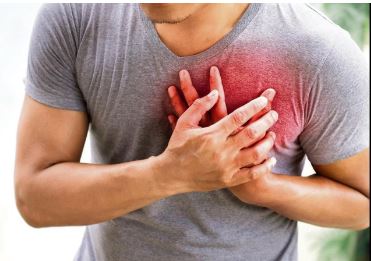‘Poor lifestyle habits like late-night sleep, binge watching, and genetic predisposition are other reasons for attacks’.
NEW DELHI
As India has seen a number of young people and celebrities dying of heart attacks in recent years, it has become a cause for worry. The Sunday Guardian talked to some experts to try and understand this worrying trend.
Dr Abhishek Singh, Consultant, Cardiology, Manipal Hospital, said: “We see young celebrities dying of heart attacks because their stress levels are much higher, and more of these people suddenly become health enthusiasts, shifting to crash diets and sudden vigorous exercise, which both mind and heart are not ready for. They use anabolic steroids as a supplement with a non-physical diet with extreme exercise.”
“In recent years, we have witnessed young people and celebrities dying of heart attacks because, previously, it was only common among people over 50. In fact, startlingly, 20% of the over 2 lakh infants in India who are born with congenital heart abnormalities (CHD) need life-saving treatments within the first year of their lives,” Dr Singh said.
Dr Ashish Agarwal, Director of Cardiology at Aakash Healthcare, said, “There are several reasons behind it, such as lack of exercise, unhealthy diet choices such as high-carbohydrate and low-fiber foods, including sweets and processed foods, smoking, poor lifestyle habits like late-night sleep, binge watching, genetic predisposition, and environmental pollution, all of which play a role. All these factors have led to many young individuals developing hypertension and diabetes, which in turn silently increases their risk for heart disease.”
According to the research paper “Junk Food and heart disease: The Missing Tooth”, most clinicians recognise that junk food consumption is associated with premature heart disease. “People think that if they don’t drink or smoke, they are on the safer side, but both are equally vulnerable as people are so exposed to junk,” said Dr Singh.
Both experts agree on the fact that diet has an important role to play in maintaining heart health. The food that you eat can influence your risk factors for heart disease and illnesses like atherosclerosis, which have been linked to diets rich in saturated fats, trans fats, and cholesterol. Additionally, a diet high in salt (sodium) can bring about a rise in blood pressure.
Consuming foods with high quantities of fat, salt, sugar, or processed ingredients can directly contribute to the development of artery plaque that restricts blood flow, raising your chances of developing heart disease, a heart attack, or a stroke. Also, adults who sleep less than 7 hours each night are more likely to have health problems like obesity, diabetes, and high blood pressure. Some of these health problems can increase their risk of heart disease, heart attack, and stroke.
Responding to the fact that Covid-19 has impacted our heart health, both experts agree that Covid-19 seems to be able to make the blood stickier and enhance the chance of blood clot formation (it’s not yet clear whether it’s the infection, the vaccine, or both). It appears to cause blood vessel irritation to flare up. Whether it’s directly connected to the illness or events around the infection, it seems to also generate in some people an overwhelming stress that can also induce a surge in blood pressure.
In this new age of the internet, where we receive everything from groceries to electronic applications with just a few clicks, how much has screen time impacted hearts? Dr Agarwal said: “Research shows that increased screen time is linked to an increased risk of ‘all-cause mortality’ in addition to an increased risk of heart disease and cancer.”
“Most heart diseases are mostly found in urban settings because somehow air pollution can aggravate existing cardiovascular disease and contribute to the onset of the illness. The findings are especially strong when it comes to exposure to outdoor particle pollution. PM2.5 (particulate matter with a diameter of less than 2.5 m), sometimes referred to as fine particulate matter, might increase the likelihood of cardiovascular events,” he added.
Both experts suggested that a healthy diet is one that is rich in fresh fruits, veggies, and whole grains, along with fewer processed foods. Also, do not smoke or consume too much alcohol. Lastly, make sure you get a regular dose of physical activity and take less stress.

